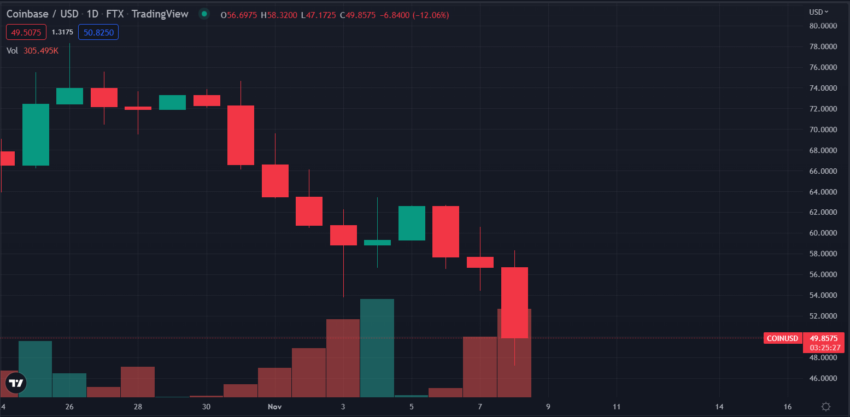Germany’s financial markets regulator BaFin has cautioned Coinbase about its German operations following an audit by Deloitte.
The regulator instructed the crypto exchange to put a “proper” business structure in place after the audit found deficiencies in Coinbase Germany GmbH’s organizational structure.
The nature of BaFin’s censure of Coinbase
The censure comes to bring Coinbase’s German operations in line with Section 25a Paragraph 2 Sentence 2 of the German Banking Act ( KWG ).
Section 25a of the Act primarily lays out rules for “appropriate and effective risk management” to ensure that a business is well-capitalized.
Furthermore, the Act outlines the need for internal rules on how an organization structures itself with employees of appropriate skill levels at each position. It also stipulates that a financial institution like a bank must have processes to identify, manage and report risks.
The censure came as Coinbase’s business posted three-quarters of losses, losing $545 million in Q3, 2022. Its core revenue driver, speculative trading, has been hit hard by the spate of interest rate hikes introduced by the Federal Reserve. The company also laid off 18% of its workforce in June 2022.
Meanwhile, Coinbase was testing a fix to a connection problem for its application and website, first announced at 10:03 a.m. PST.
Coinbase reports robust risk management
The BaFin censure is incredibly poignant when the crypto market is experiencing the fallout of bankrupt and insolvent companies that failed to practice proper risk management.
In a July blog post, Coinbase explained that Three Arrows Capital and Celsius failed because of inadequate risk management.
“Notably, the issues here were foreseeable and actually credit-specific, not crypto-specific in nature. Many of these firms were overleveraged with short-term liabilities mismatched against longer duration illiquid assets,” the company said.
According to the blog post, Coinbase conducts due diligence on counterparty credit risk, and stress tests exposures to counterparty risk. It also develops mitigation plans for unforeseen circumstances.
At press time, BaFin had not released the Deloitte audit to the public.
Meanwhile, Coinbase and other exchanges have yet to see how the recently-delayed Markets in Crypto-Assets (MiCA) bill will affect exchanges in the EU. Exchanges will hope that MiCA’s passing will not result in a patchwork of regulations that complicate compliance.
Crypto exchanges have frustrated regulators globally for having opaque organizational structures. Exchanges like Coinbase and Binance having no formal headquarters, making it difficult for regulators to pin them down.
Coinbase shares fall after Binance-FTX deal
Coinbase’s shares fell 12% after Binance announced on Nov. 8, 2022, that it had agreed to purchase rival FTX in the wake of a liquidity crisis. Coinbase investors appeared spooked that FTX, once known for its bailout of major crypto firms, experienced a liquidity crisis.

“It shows that liquidity in crypto exchanges could be very fickle,” said Dan Dolev of Mizuho Securities.
For Be[In]Crypto’s latest Bitcoin (BTC) analysis, click here.
Disclaimer
In adherence to the Trust Project guidelines, BeInCrypto is committed to unbiased, transparent reporting. This news article aims to provide accurate, timely information. However, readers are advised to verify facts independently and consult with a professional before making any decisions based on this content. Please note that our Terms and Conditions, Privacy Policy, and Disclaimers have been updated.


